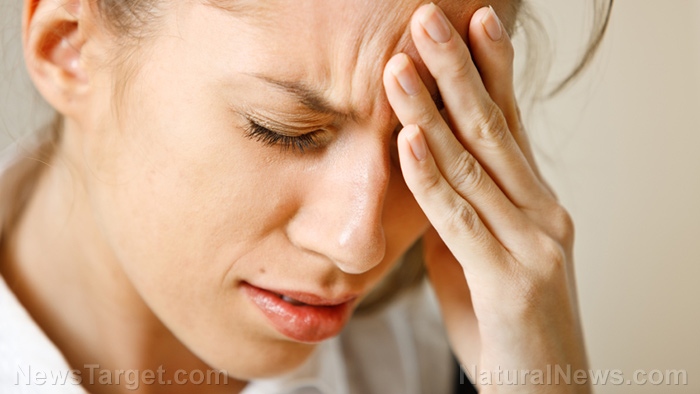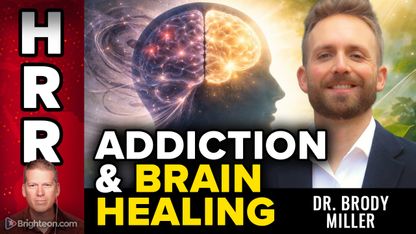
The dangers of loss of balance
Balance problems usually occur when there is a problem with the signals the inner ear sends to the brain, which can make you feel dizzy or unsteady. The unsteadiness can make you feel as if you're moving, spinning, or floating while you're standing or sitting still. If you're walking, you might experience tipping over. The dizziness that comes with loss of balance can interfere with one's daily life and could lead to falls, which could cause further complications like broken bones.
There are plenty of causes associated with loss of balance. Here are 11 of the most common ones:
Labyrinthitis
Labyrinthitis is an inner ear infection that directly affects the labyrinth, which is made up of two parts – the cochlea and the vestibular system. The labyrinth is the structure inside the inner ear that sends information to the brain about spatial navigation and balance.
Labyrinthitis causes inflammation in the inner ear that disrupts the flow of information between the ear and the brain. While anyone can develop labyrinthitis, some factors can increase the risk, specifically getting upper respiratory tract infections like the flu.
Meniere's disease
This disease is another inner ear disorder that causes extreme dizziness like vertigo, ringing in the ears, and even the feeling of congestion inside the ear. With this disease, fluids can build up in the inner ear, which can disrupt the signals similarly to labyrinthitis.
According to the National Institute on Deafness and Other Communication Disorders (NIDCD), more than 600,000 people have been diagnosed with Meniere's disease in the US, with 45,500 cases newly diagnosed this year. This disease is chronic, but there are treatments to prevent the symptoms from occurring.
Vertigo
Vertigo refers to the feeling that your surroundings are spinning while you're standing or sitting still. Contrary to popular belief, it is not related to the fear of heights. While it is often associated with the dizziness that some people feel when looking down from a high altitude, it can refer to any temporary or persistent dizzy spells caused by inner ear problems.
Benign paroxysmal positional vertigo (BPPV)
Also referred to as positional vertigo, BPPV causes a sense of dizziness that happens when one turns their head in a certain way. This condition occurs when calcium carbonate crystals come loose inside the ear and infiltrate the semicircular canals in the labyrinth. These canals use fluid to sense motion, so moving your head in a certain way can cause these crystals to block fluid movement. This causes the ear to send incorrect signals to the brain about the head's position, causing dizziness. (Related: Vertigo symptoms traced to inner ear 'rock slides'.)
Lightheadedness
Lightheadedness, also known as presyncope, is the feeling as if you're about to faint but not lose consciousness. The body may feel much heavier while the head feels as if there isn't enough blood flowing to it, thus being called "lightheadedness." This condition occurs when one moves too quickly from a sitting position to a standing position. The quick change in posture can momentarily reduce blood flow to the brain, which results in a sudden drop in blood pressure.
Mal de Debarquement (MdDS)
MdDS literally translates to "sickness of disembarkment." It refers to the illusion of movement that happens after traveling on a boat or ship after a long time. Now, the definition has expanded to include other types of travel and movement patterns, like running on a treadmill. People with this condition may experience the sensation of swaying even when they are not on a moving surface.
Stroke
If one experiences a severe headache, nausea, sudden vision problems, and numbness on one side of the body alongside loss of balance, it may be a stroke. A person who suffers a stroke may still find problems with balance, making it difficult to walk and move around.
Acoustic neuroma
Also known as a vestibular schwannoma, an acoustic neuroma is a noncancerous tumor that affects the nerves of the inner ear, which affects balance and hearing. People with this condition feel unsteady, and it could lead to hearing loss or even tinnitus.
Perilymph fistula
A perilymph fistula is a tear in one of the membranes found between the inner and middle ear. The middle ear is filled with air while the inner ear is filled with fluid. A tear in the membrane between these two parts can cause the liquid from the inner ear to pour into the middle ear, causing unsteadiness when moving.
Vestibular neuronitis
Vestibular neuronitis refers to an infection of the vestibular nerve inside the inner ear. This causes inflammation that could disrupt balance. Vestibular neuronitis is often confused with labyrinthitis, but the latter is usually accompanied by hearing loss alongside the balance problems.
Medications
Medications like antidepressants and anti-anxiety drugs have been known to cause nasty side effects, including loss of balance and lightheadedness.
The inner ear is responsible for maintaining balance and coordination. Because of this, it is essential to take care of your inner ear to prevent these conditions that could affect your balance.
Sources include:
Stroke.org.uk [PDF]
Please contact us for more information.




















